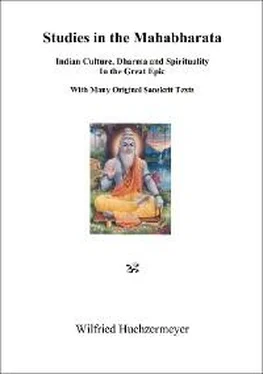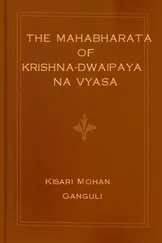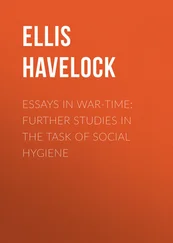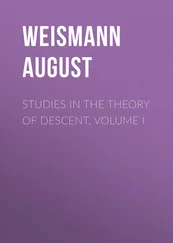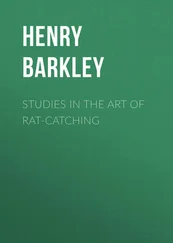We seem to have some evidence here that Yudhiṣṭhira in spite of all his virtue was attached to dice playing. On the other hand, when Vidura came to invite him on behalf of Dhṛtarāṣṭra, the Pāṇḍava was not enthusiastic about the proposal:
At a game, Vidura, there will be quarrel. Knowing this, who would like to play?62
Yudhiṣṭhira is shocked to learn that Śakuni and other cunning players will be present. However, he agrees to accept the challenge in accordance with dharma: the invitation was sent by Dhṛtarāṣṭra, so Yudhiṣṭhira is obliged to accept it under the rules of the family law. Moreover, he seems to be under an oath to take up any challenge made to him; and thirdly, a sense of Fate, a sense of the inevitable overcomes him:
Through the Creator’s will everything is in his sway. I don’t refuse now to play with those gamblers. O sage, at the behest of king Dhṛtarāṣṭra I will go to the dice game. A son always respects his father. Therefore, I will do as you tell me, Vidura. It is not that I am unwilling to play with Śakuni. Otherwise he would aggressively challenge me in that hall. Once challenged, I never refuse, I have sworn this for eternity.63
According to this statement – and he has a great reputation for truth-speaking – Yudhiṣṭhira was not moved by his passion for the game in following the invitation, but he rather saw with his calm rational mind that anyhow he had to enter the arena. It is a real dilemma: he knows with his reasoning mind that he is acting against reason. A higher factor has superseded the mental conclusion: Fate.
daivaṁ prajñāṁ tu muṣṇāti tejaścakṣurivāpatat /
dhātuśca vaśamanveti pāśairiva naraḥ sitaḥ //
Fate carries away our reason as glare blinding the eye. Bound as with nooses, man follows the creator’s will.64
These words spoken by Yudhiṣṭhira are probably the final answer to the question as to why he chose to accept Dhṛtarāṣṭra’s invitation. As the analysis of some later situations will show, Yudhiṣṭhira is actually trapped by his own strict interpretation of dharma. The King is to be obeyed under all circumstances – because this is the family dharma. Yudhiṣṭhira cannot escape the situation and therefore calls it daivam.
In this context we may enquire whether the dharma as such, in a higher sense, as the total balance of justice, is really protected by such an adherence to a specific dharma, the rule of obedience to the elder in this case. In other words, if an elder member of the family asks a junior member to do something wrong, should the junior obey? This is a question of legal philosophy with many implications. But at first we will investigate in detail where this specific law takes a man who follows it consistently up to the end.
Before Duryodhana got his father to arrange for the dice game, he had to struggle a good deal to overcome the resistance of the blind ruler who preferred to ask Vidura first. Duryodhana then decided to use the ultimate means for winning over his father: he threatened with suicide:
The kṣattā65 will turn you down, when consulted. And when you are turned down, rājendra, I will certainly kill myself. If I am dead, king, be happy with Vidura. The whole earth will be there for you to enjoy – why should you think of me!66
These two verses give us the essence of the relationship between Dhṛtarāṣṭra and his eldest son. And the king yields, as always. The subsequent consultation with Vidura is only a formality. Dhṛtarāṣṭra appears to be quite sure of himself, he also speaks of destiny:
Surely, the Gods in heaven will bestow their Grace on us. Whether good or bad, beneficent or maleficent, the family game at dice shall proceed, for it is certainly so destined by fate.67
However, the king in his typical way subsequently changed his mind, after having given the orders for the construction of the gambling hall, and tried to convince his son to follow Vidura’s advice by abstaining from his plans. This makes Duryodhana come forward with a long monologue on the unbearable envy he was suffering when seeing the grandeur of the Pāṇḍavas. In the end he states in unambiguous terms his own philosophy of Machiavellian Machtpolitik:
The kṣatriya’s life is focused on victory, mahārāja. Let it be dharma or adharma, as long as it is his own way of being. Discontent is the root of wealth, therefore I desire discontent. He who strives after the summit, is, oh king, the greatest leader. Should we not act selfishly in matters of power or wealth? Others rob what someone had acquired before, for this is known to be the dharma of kings.68
Dhṛtarāṣtra’s mind is helplessly swayed under the combined impact of Śakuni’s and Duryodhana’s arguments. So he gives his final consent to the game, unwilling though, and predicting trouble to his son in the future. This following verse too gives deep insight into the king’s character. He is knowingly permitting his son to tread the path of adharma, but too weak to resist him:
I do not like what you say. But do as you please, king of men. Thereafter you will suffer, remembering these words, because what you say is not in line with the dharma.69
The Game Starts
The game itself and subsequent developments are the most humiliating and embarrassing experience in the life of Yudhiṣṭhira. The very embodiment of virtue, of high sattvic qualities is seen here as if sucked into a whirlpool which rapidly and irresistibly pulls him down into the deepest abyss. We observe in him a weakness common in such natures, namely that they refuse to resist evil and thus play into the hands of the devil. And yet Yudhiṣṭhira is following some principles as we have pointed out above. What happens now is a tragedy unfolding itself for the very reason that he is stubbornly sticking to his principles, which become his cross.
Before the beginning of the dice game, Yudhiṣṭhira has a talk with Śakuni which displays his meek nature; it has no great force in it. Yudhiṣṭhira said:
Gaming is fraud and is evil; there is no kṣatriya prowess in it, or steady conduct, prince. Why do you praise dicing? For no one praises the gambler’s pride in his fraud: Śakuni, don’t defeat us by wrong and crooked means!70
No need to say that this naïve appeal fails to evoke any adequate response from the cunning Śakuni who takes Yudhiṣṭhira back to the reality of the game, pointing out that the true gambler is the one who detects the deceptions of other players and moves the dice cleverly with great skill and cunning. In his response, Yudhiṣṭhira continues with his appeal to Śakuni to play a fair game. He argues that the Pāṇḍavas use their wealth to help the Brāhmins and therefore he should not win too much. Śakuni answers that Yudhiṣṭhira need not play if he is afraid of the game, but the dharmarāja mentions his vow to accept any challenge, and so the game starts.
After Śakuni has won the first game, we see Yudhiṣṭhira voicing his helpless protest for a last time – he then kept silent up to the end of this episode, defeated by Fate and his own sense of dharma.
Through a trick you have won this game. All right, let us play now, Śakuni, throwing the dice a thousand times.71
Yudhiṣṭhira is seized by a negative force now which makes him stake and lose rapidly all his wealth. His rational mind is no more active from this moment onwards; he seems only to be in a haste to be devoured by the spider in whose net he has been caught. Even while he is thus gambling away all his possessions, the embarrassed Kuru elders look on impassively and nobody tries to come to his rescue - except Vidura.
Iravati Karve has pointed out in Yugānta72 that Dhṛtarāṣṭra’s half-brother may actually have been Yudhiṣṭhira’s real physical father – a thesis which is well supported by several passages in the text.73 Thus it was Vidura who warned Yudhiṣṭhira about the plot of burning the lacquer palace at Vāraṇāvata and sent an expert miner to dig a tunnel. He always argued on behalf of the Pāṇḍavas and openly took their part. Furthermore, he gave shelter to Kuntī during the thirteen years’ exile of the Pāṇḍavas. Indeed, a close reading of various passages describing meetings between Vidura and Yudhiṣṭhira reveals their intimate relationship.
Читать дальше
